Current and Future Professional Insights on Cooperation towards Circular Economy Adoption
Abstract
:1. Introduction
- We rely entirely on authorities to force trust (cooperation) towards sustainability; and
- Policy-makers shape law based on this misunderstanding, which results in reinforcing the previous mindset.
2. Circular Economy Survey-Based Studies
2.1. Studies of Student Cohorts
2.2. Studies of Practitioners and Businesses
3. Methods and Materials
Survey Design and Sample Description
- Companies involved with the Alternative Raw materials with Low Impact (ARLI) project (The ARLI project is an ERDF-funded project whereby a team of experienced academics and engineers support businesses in developing cost-effective products and processes that provide energy-efficiency gains in the use of raw and waste materials. The CE-based project, delivered through the School of Engineering at the University of Birmingham, UK, aims to identify waste streams or other materials that could be transformed into higher-value goods for construction and other manufacturing industry applications—https://www.birmingham.ac.uk/partners/sme-support/business-support-programmes/arli.aspx. Accessed on 16 September 2021) at the University of Birmingham (n = 27 out of approximately 145). These are companies with a professional interest in the general topic area covered by CE.
- Post-Graduate Masters level students from:
- ∘
- University of Birmingham (students opting to study Sustainable Construction as part of their degrees in Engineering, Business and Management, n = 88);
- ∘
- University of Oxford (Business School, n = 13).
- Section 1:
- To identify respondents’ familiarisation with the CE (Table 6).
- Section 2:
- To learn about the importance respondents attached to adopting CE principles (Table 7).
- Section 3:
- To gain insights into respondents’ perceptions of other stakeholders (Table 8).
4. Results and Findings
4.1. CE Awareness
4.2. Importance of Adopting CE Principles
4.3. Perceptions of Other Stakeholder Groups
5. Discussion
Perceptions of Other CE Stakeholders
6. Conclusions
- Studies based on surveys in the CE literature are usually limited to measuring CE awareness amongst government, the general public and firms. Other aspects are commonly researched, such as barriers, enablers, practices and attitudes; however, the relationships with cooperation have not been sufficiently explored.
- The 3Rs approach is still ingrained in the CE practices of respondents. Whilst this is not a negative symptom, it reinforces the ‘striking gap’ between the self-claimed awareness of the CE and the practices adopted by the various stakeholders to develop a CE.
- The findings related to the attitudes and willingness to cooperate amongst current and future professionals working in this sphere of activity revealed encouraging and optimistic perspectives from (i.e., good intentions of) stakeholders to the CE development, despite benefits and costs not always being evident to all participants.
Author Contributions
Funding
Institutional Review Board Statement
Informed Consent Statement
Data Availability Statement
Acknowledgments
Conflicts of Interest
References
- Lieder, M.; Rashid, A. Towards circular economy implementation: A comprehensive review in context of manufacturing industry. J. Clean. Prod. 2016, 115, 36–51. [Google Scholar] [CrossRef]
- Grimes-Casey, H.G.; Seager, T.P.; Theis, T.L.; Powers, S.E. A game theory framework for cooperative management of refillable and disposable bottle lifecycles. J. Clean. Prod. 2007, 15, 1618–1627. [Google Scholar] [CrossRef]
- Robèrt, K.-H.; Broman, G. Prisoners’ dilemma misleads business and policy making. J. Clean. Prod. 2017, 140, 10–16. [Google Scholar] [CrossRef]
- Bains, M.; Hongyi, Y.; Jialong, C. International policy perspectives on construction waste minimisation and recycling. Proc. Inst. Civ. Eng. Waste Resour. Manag. 2019, 172, 76–85. [Google Scholar] [CrossRef]
- Stahel, W.R. Analysis of the structure and values of the European Commission’s Circular Economy Package. Proc. Inst. Civ. Eng. Waste Resour. Manag. 2017, 170, 41–44. [Google Scholar] [CrossRef] [Green Version]
- Tseng, M.-L.; Phuong, T.; Tran, T.; Ha, H.M.; Bui, T.-D.; Lim, M.K. Sustainable industrial and operation engineering trends and challenges Toward Industry 4.0: A data driven analysis. J. Ind. Prod. Eng. 2021, 1–18. [Google Scholar] [CrossRef]
- Palafox-Alcantar, P.G.; Hunt, D.V.L.; Rogers, C.D.F. The complementary use of game theory for the circular economy: A review of waste management decision-making methods in civil engineering. Waste Manag. 2020, 102, 598–612. [Google Scholar] [CrossRef]
- Kirchherr, J.; Hekkert, M.; Bour, R.; Huijbrechtse-Truijens, A.; Kostense-Smit, E.; Muller, J. Breaking the Barriers to the Circular Economy; Deloitte: Utrecht, The Netherlands, 2017. [Google Scholar]
- Kirchherr, J.; Piscicelli, L.; Bour, R.; Kostense-Smit, E.; Muller, J.; Huibrechtse-Truijens, A.; Hekkert, M. Barriers to the Circular Economy: Evidence from the European Union (EU). Ecol. Econ. 2018, 150, 264–272. [Google Scholar] [CrossRef] [Green Version]
- Borrello, M.; Caracciolo, F.; Lombardi, A.; Pascucci, S.; Cembalo, L. Consumers’ Perspective on Circular Economy Strategy for Reducing Food Waste. Sustainability 2017, 9, 141. [Google Scholar] [CrossRef] [Green Version]
- Alnajem, M.; Mostafa, M.M.; ElMelegy, A.R. Mapping the first decade of circular economy research: A bibliometric network analysis. J. Ind. Prod. Eng. 2020, 38, 29–50. [Google Scholar] [CrossRef]
- Palafox-Alcantar, P.G.; Hunt, D.V.L.; Rogers, C.D.F. A Hybrid Methodology to Study Stakeholder Cooperation in Circular Economy Waste Management of Cities. Energies 2020, 13, 1845. [Google Scholar] [CrossRef] [Green Version]
- Liu, Q.; Li, H.; Zuo, X.; Zhang, F.; Wang, L. A survey and analysis on public awareness and performance for promoting circular economy in China: A case study from Tianjin. J. Clean. Prod. 2009, 17, 265–270. [Google Scholar] [CrossRef]
- Topal, H.F.; Hunt, D.V.L.; Rogers, C.D.F. Exploring Urban Sustainability Understanding and Behaviour: A Systematic Review towards a Conceptual Framework. Sustainability 2021, 13, 1139. [Google Scholar] [CrossRef]
- Veleva, V.; Bodkin, G. Corporate-entrepreneur collaborations to advance a circular economy. J. Clean. Prod. 2018, 188, 20–37. [Google Scholar] [CrossRef]
- Buil, P.; Roger-Loppacher, O.; Selvam, R.M.; Prieto-Sandoval, V. The Involvement of Future Generations in the Circular Economy Paradigm: An Empirical Analysis on Aluminium Packaging Recycling in Spain. Sustainability 2017, 9, 2345. [Google Scholar] [CrossRef] [Green Version]
- De Feo, G.; Williams, I.D. Siting landfills and incinerators in areas of historic unpopularity: Surveying the views of the next generation. Waste Manag. 2013, 33, 2798–2810. [Google Scholar] [CrossRef]
- Ferronato, N.; D’Avino, C.; Ragazzi, M.; Torretta, V.; De Feo, G. Social Surveys about Solid Waste Management within Higher Education Institutes: A Comparison. Sustainability 2017, 9, 391. [Google Scholar] [CrossRef] [Green Version]
- Rodriguez-Andara, A.; Río-Belver, R.M.; Rodríguez-Salvador, M.; Lezama-Nicolás, R. Roadmapping towards sustainability proficiency in engineering education. Int. J. Sustain. High. Educ. 2018, 19, 413–438. [Google Scholar] [CrossRef]
- Rodríguez-Chueca, J.; Molina-García, A.; García-Aranda, C.; Pérez, J.; Rodríguez, E. Understanding sustainability and the circular economy through flipped classroom and challenge-based learning: An innovative experience in engineering education in Spain. Environ. Educ. Res. 2020, 26, 238–252. [Google Scholar] [CrossRef]
- Gazzola, P.; Pavione, E.; Pezzetti, R.; Grechi, D. Trends in the Fashion Industry. The Perception of Sustainability and Circular Economy: A Gender/Generation Quantitative Approach. Sustainability 2020, 12, 2809. [Google Scholar] [CrossRef] [Green Version]
- Ferronato, N.; Lizarazu, E.G.G.; Tudela, J.M.V.; Callisaya, J.K.B.; Preziosi, G.; Torretta, V. Selective collection of recyclable waste in Universities of low-middle income countries: Lessons learned in Bolivia. Waste Manag. 2020, 105, 198–210. [Google Scholar] [CrossRef]
- Loste, N.; Chinarro, D.; Gomez, M.; Roldan, E.; Giner, B. Assessing awareness of green chemistry as a tool for advancing sustainability. J. Clean. Prod. 2020, 256, 1–9. [Google Scholar] [CrossRef]
- González-Domínguez, J.; Sánchez-Barroso, G.; Zamora-Polo, F.; García-Sanz-Calcedo, J. Application of circular economy techniques for design and development of products through collaborative project-based learning for industrial engineer teaching. Sustainability 2020, 12, 4368. [Google Scholar] [CrossRef]
- Revinova, S.; Ratner, S.; Lazanyuk, I.; Gomonov, K. Sharing Economy in Russia: Current Status, Barriers, Prospects and Role of Universities. Sustainability 2020, 12, 4855. [Google Scholar] [CrossRef]
- Fonseca, L.M.; Domingues, J.P. Adoption of Circular Economy concepts and practices by Portuguese Citizens and Companies. In Proceedings of the International Conference on Business Excellence, Bucharest, Romania, 22–23 March 2018; Volume 12, pp. 374–385. [Google Scholar]
- Adams, J.; Hillier-Brown, F.C.; Moore, H.J.; Lake, A.A.; Araujo-Soares, V.; White, M.; Summerbell, C. Searching and synthesising “grey literature” and “grey information” in public health: Critical reflections on three case studies. Syst. Rev. 2016, 5, 164. [Google Scholar] [CrossRef] [Green Version]
- Guo, B.; Geng, Y.; Sterr, T.; Zhu, Q.; Liu, Y. Investigating public awareness on circular economy in western China: A case of Urumqi Midong. J. Clean. Prod. 2017, 142, 2177–2186. [Google Scholar] [CrossRef]
- Xue, B.; Chen, X.; Geng, Y.; Guo, X.; Lu, C.; Zhang, Z.; Lu, C. Survey of officials’ awareness on circular economy development in China: Based on municipal and county level. Resour. Conserv. Recycl. 2010, 54, 1296–1302. [Google Scholar] [CrossRef]
- Marios, T.; Giannis, I.; Lazaridou, D. Investigation of Factors Affecting Consumers ’ Awareness on Circular Economy: Preliminary Evidence from Greece. J. Reg. Socio-Econ. Issues 2018, 8, 47–57. [Google Scholar]
- Smol, M.; Avdiushchenko, A.; Kulczycka, J.; Nowaczek, A. Public awareness of circular economy in southern Poland: Case of the Malopolska region. J. Clean. Prod. 2018, 197, 1035–1045. [Google Scholar] [CrossRef]
- Lakatos, E.; Dan, V.; Cioca, L.; Bacali, L.; Ciobanu, A. How Supportive Are Romanian Consumers of the Circular Economy Concept: A Survey. Sustainability 2016, 8, 789. [Google Scholar] [CrossRef] [Green Version]
- Borrello, M.; Pascucci, S.; Caracciolo, F.; Lombardi, A.; Cembalo, L. Consumers are willing to participate in circular business models: A practice theory perspective to food provisioning. J. Clean. Prod. 2020, 259, 121013. [Google Scholar] [CrossRef]
- Liu, Y.; Bai, Y. An exploration of firms’ awareness and behavior of developing circular economy: An empirical research in China. Resour. Conserv. Recycl. 2014, 87, 145–152. [Google Scholar] [CrossRef]
- Masi, D.; Kumar, V.; Garza-Reyes, J.A.; Godsell, J. Towards a more circular economy: Exploring the awareness, practices, and barriers from a focal firm perspective. Prod. Plan. Control 2018, 29, 539–550. [Google Scholar] [CrossRef]
- Liakos, N.; Kumar, V.; Pongsakornrungsilp, S.; Garza-Reyes, J.A.; Gupta, B.; Pongsakornrungsilp, P. Understanding circular economy awareness and practices in manufacturing firms. J. Enterp. Inf. Manag. 2019, 32, 563–584. [Google Scholar] [CrossRef]
- Veleva, V.; Bodkin, G.; Todorova, S. The need for better measurement and employee engagement to advance a circular economy: Lessons from Biogen’s “zero waste” journey. J. Clean. Prod. 2017, 154, 517–529. [Google Scholar] [CrossRef]
- Adams, K.T.; Osmani, M.; Thorpe, T.; Thornback, J. Circular economy in construction: Current awareness, challenges and enablers. Proc. Inst. Civ. Eng. Waste Resour. Manag. 2017, 170, 15–24. [Google Scholar] [CrossRef] [Green Version]
- Mahpour, A. Prioritizing barriers to adopt circular economy in construction and demolition waste management. Resour. Conserv. Recycl. 2018, 134, 216–227. [Google Scholar] [CrossRef]
- Pheifer, A.G. Barriers & Enablers to Circular Business Models; ValueC: Brielle, The Netherlands, 2017. [Google Scholar]
- UKGBC. Together for a Better Built Environment; UK GBC: London, UK, 2017. [Google Scholar]
- Greentech Brussels. L’Economie Circulaire en Région de Bruxelles-Capitale; Hub.Brussels: Brussels, Belgium, 2018. [Google Scholar]
- Cother, G. Developing the circular economy in Tasmania. Action Learn. Res. Pract. 2020, 17, 108–124. [Google Scholar] [CrossRef]
- Shih, T.-H.; Fan, X. Comparing Response Rates from Web and Mail Surveys: A Meta-Analysis. Field Methods 2008, 20, 249–271. [Google Scholar] [CrossRef]
- Palafox-Alcantar, P.G.; Lee, S.E.; Bouch, C.; Hunt, D.V.L.; Rogers, C.D.F. The Little Book of Circular Economy in Cities; Imagination Lancaster: Lancaster, UK, 2017; ISBN 978-0-70442-950-5. [Google Scholar]
- Pomponi, F.; Moncaster, A. Circular economy for the built environment: A research framework. J. Clean. Prod. 2017, 143, 710–718. [Google Scholar] [CrossRef] [Green Version]
- Rogers, C.D.F.; Hunt, D.V.L. Realising visions for future cities: An aspirational futures methodology. Proc. Inst. Civ. Eng. Urban Des. Plan. 2019, 172, 125–140. [Google Scholar] [CrossRef] [Green Version]
- Rogers, C.D.F. Engineering Future Liveable, Resilient, Sustainable Cities Using Foresight. Proc. Inst. Civ. Eng. Eng. 2018, 171, 3–9. [Google Scholar] [CrossRef] [Green Version]

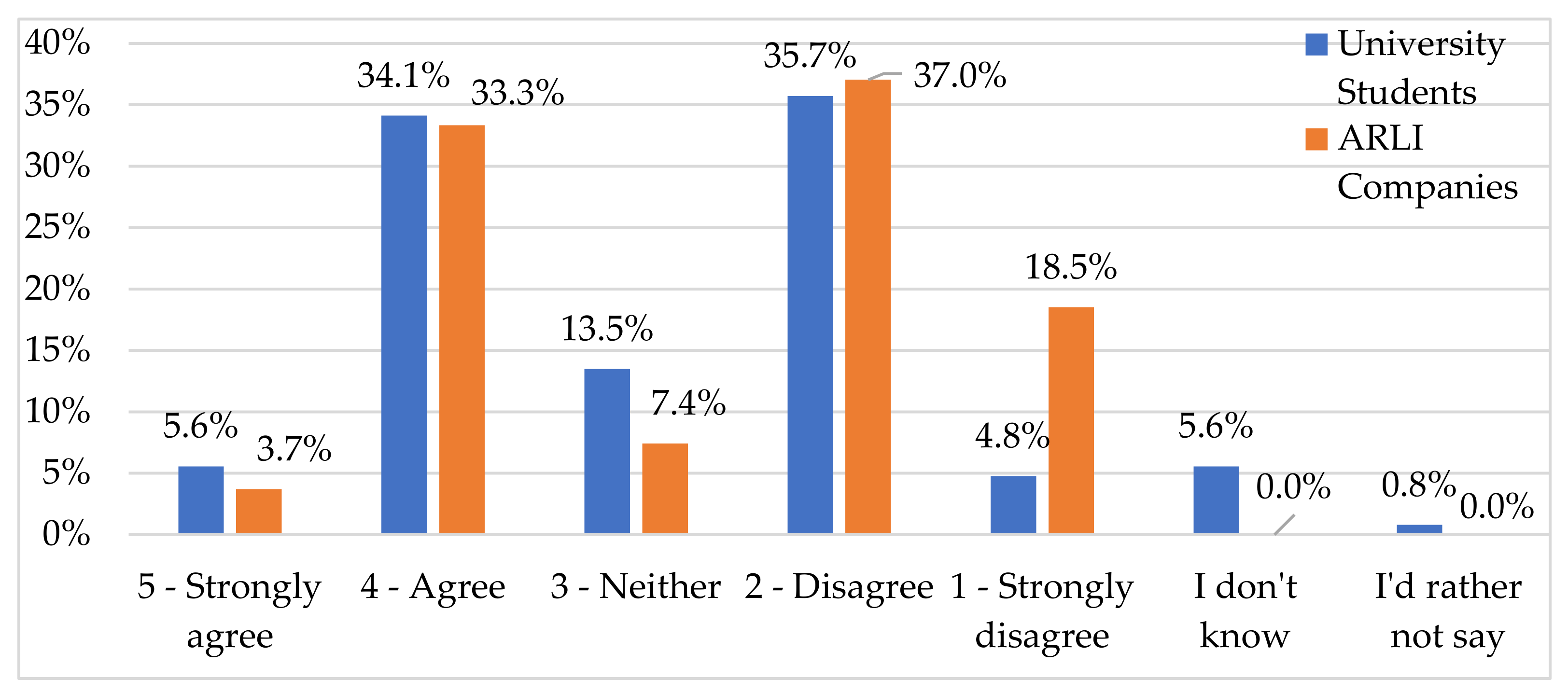
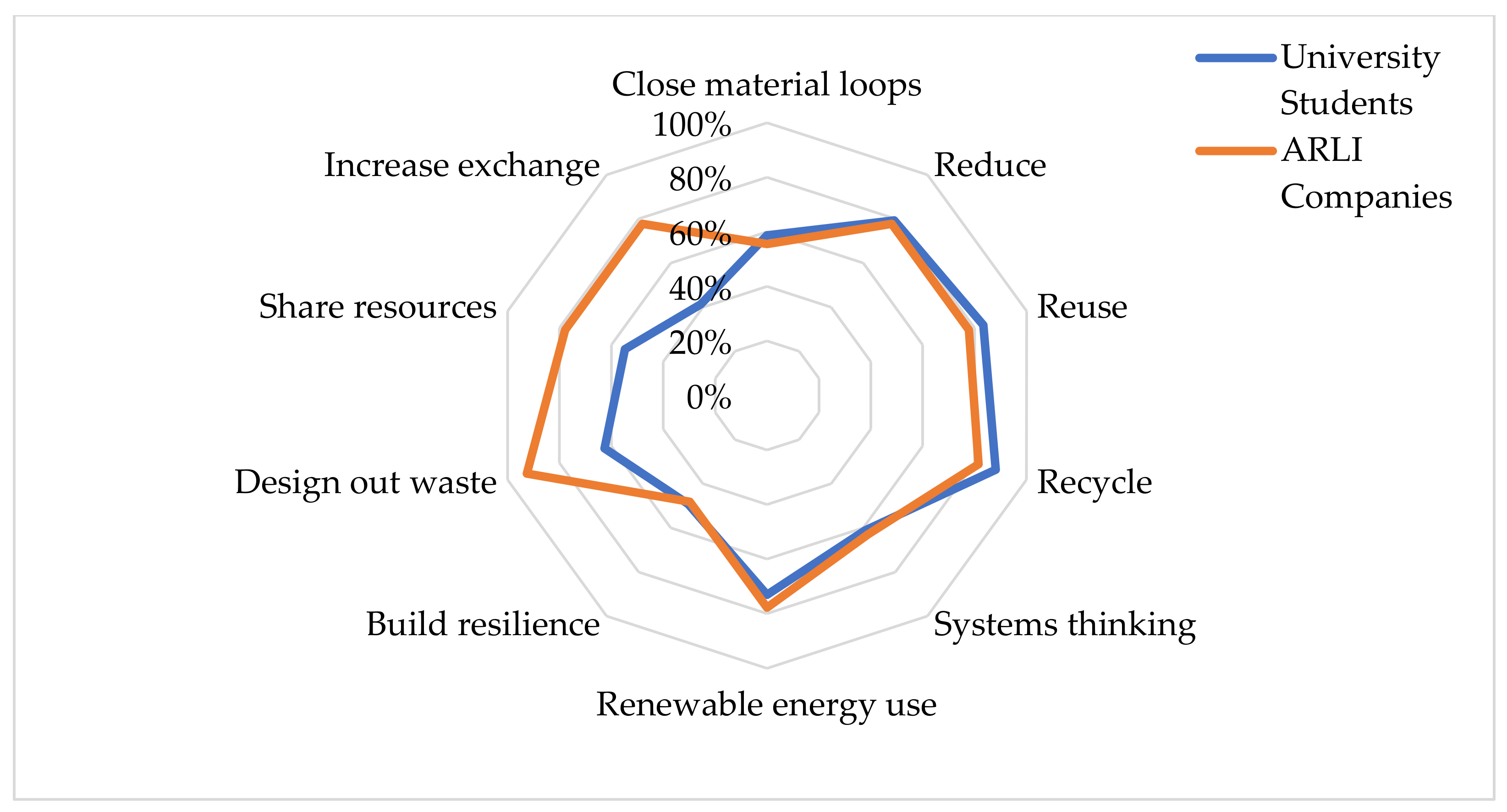
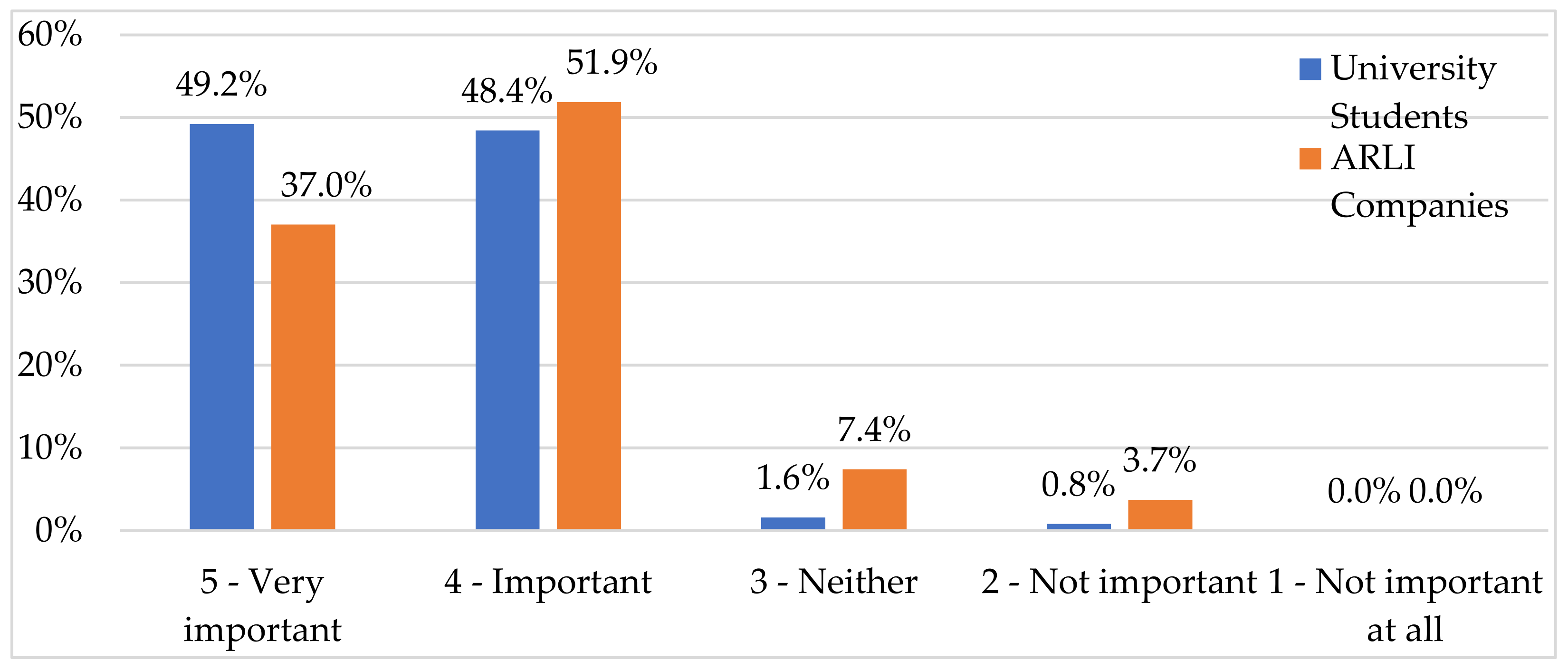
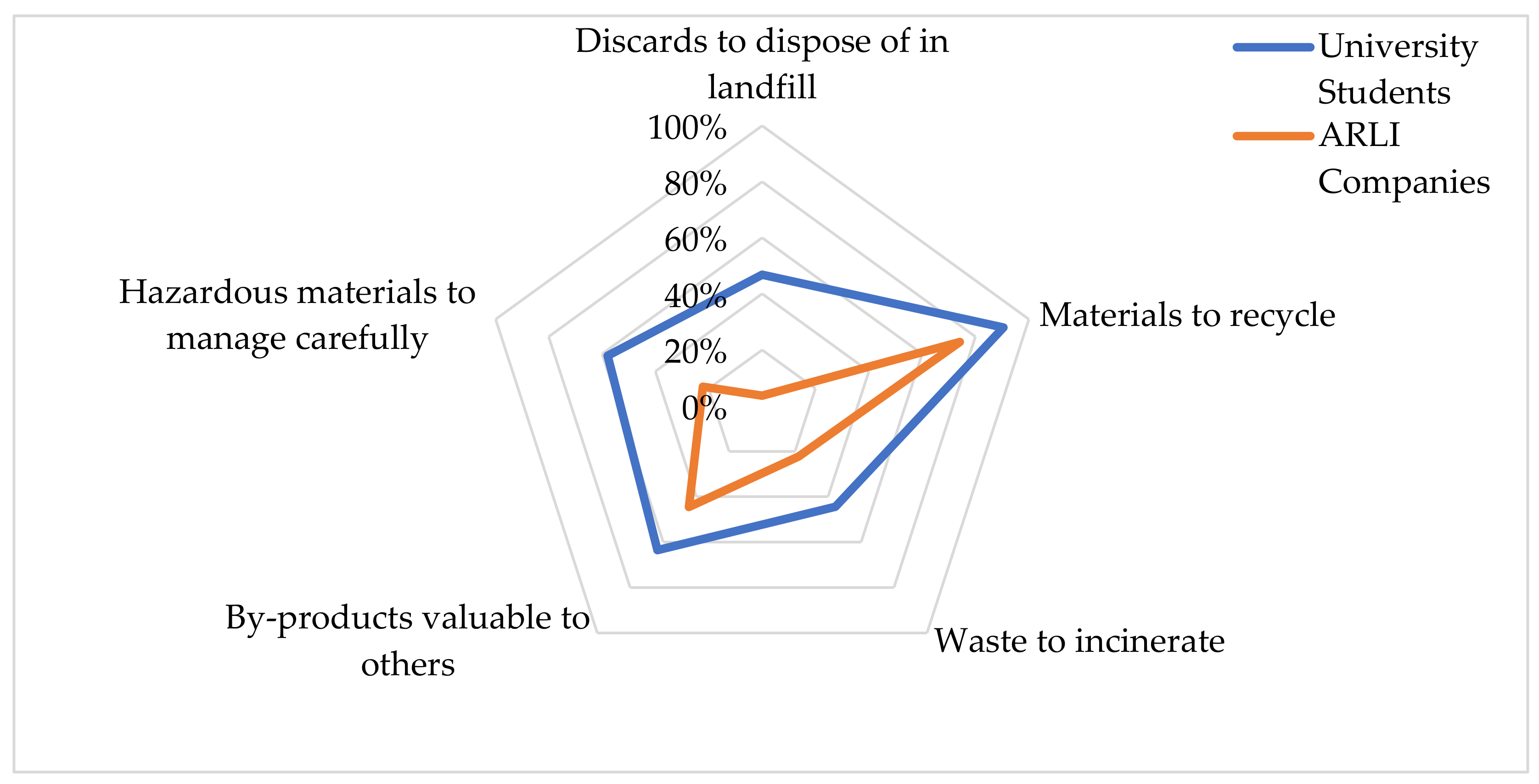
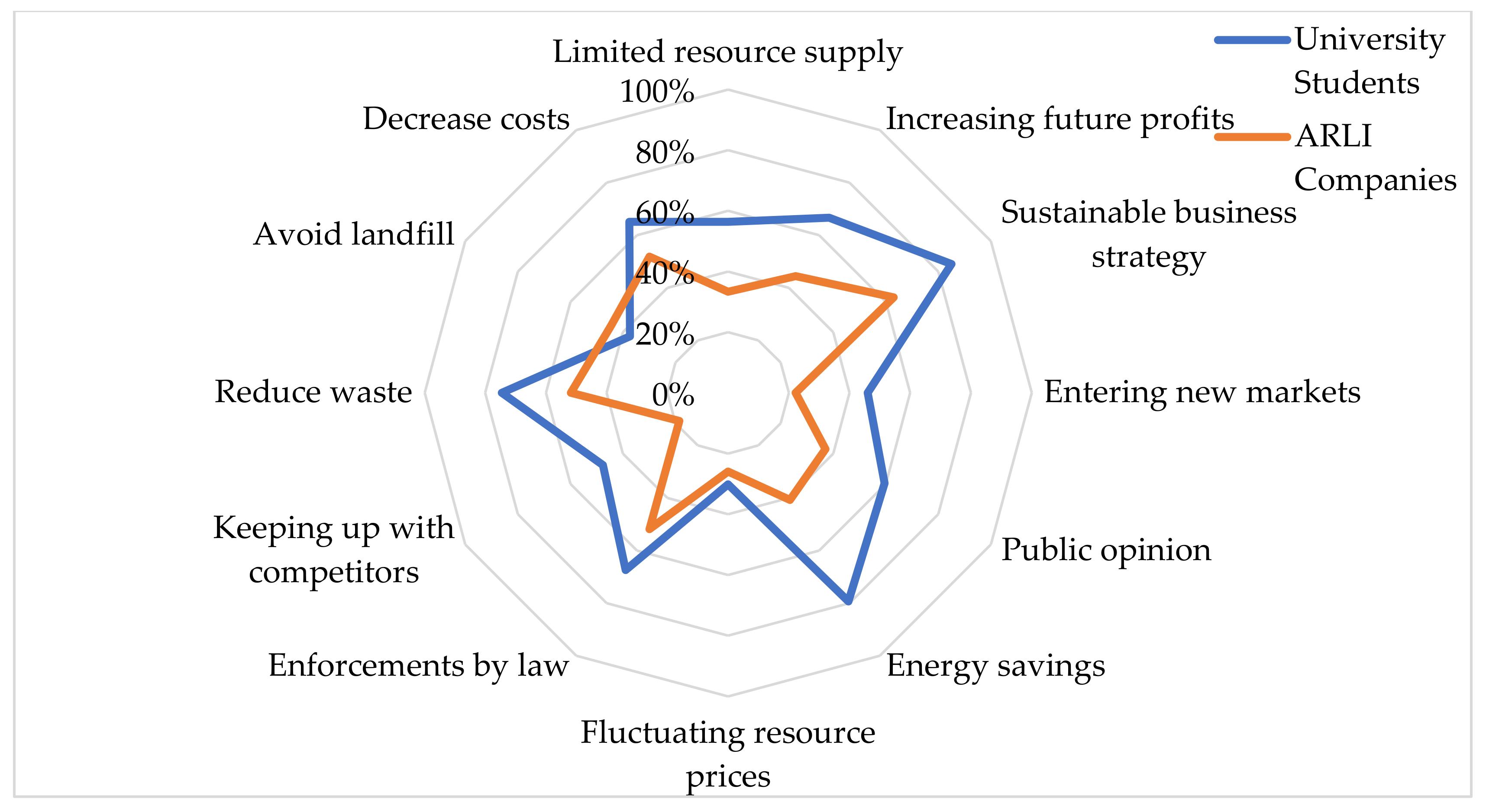
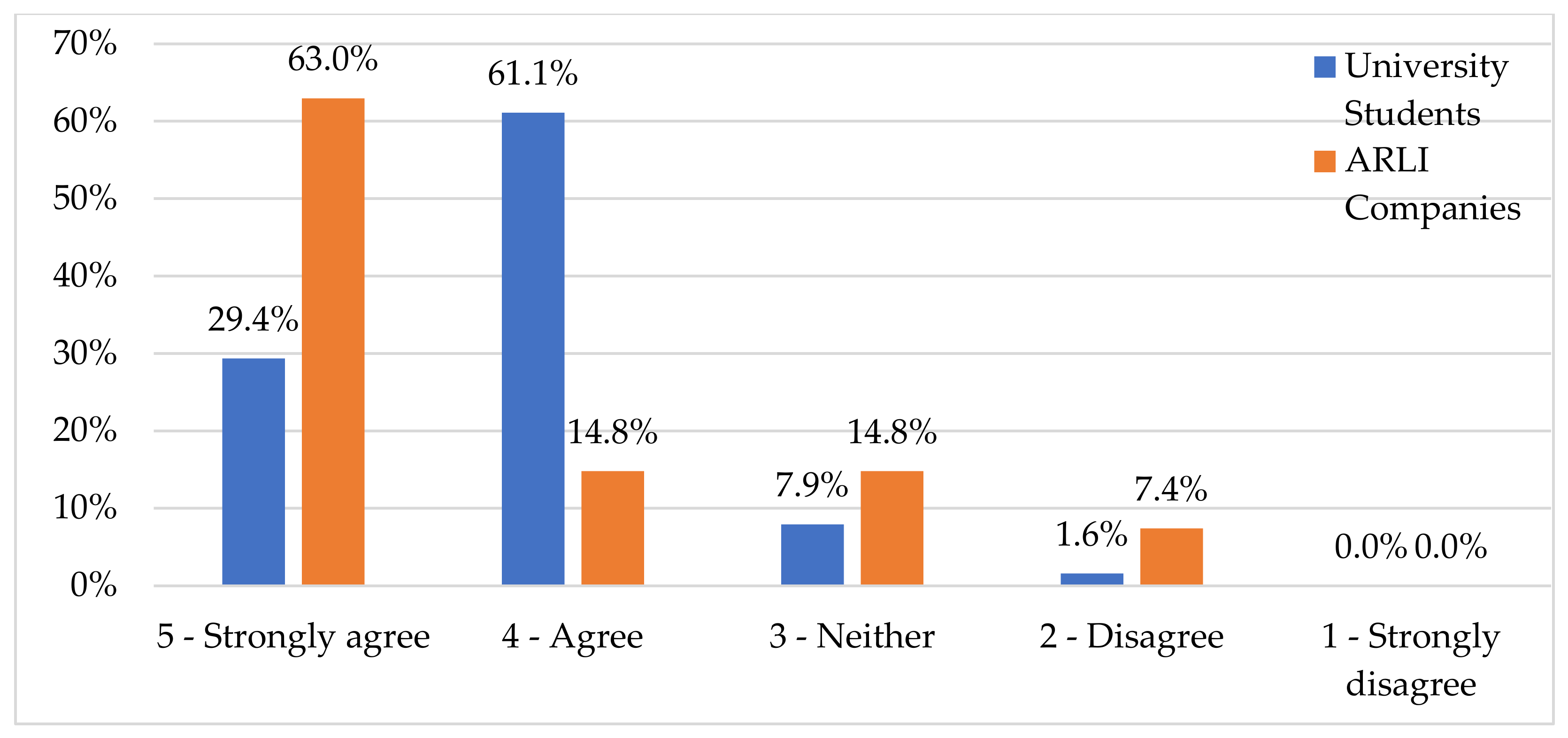
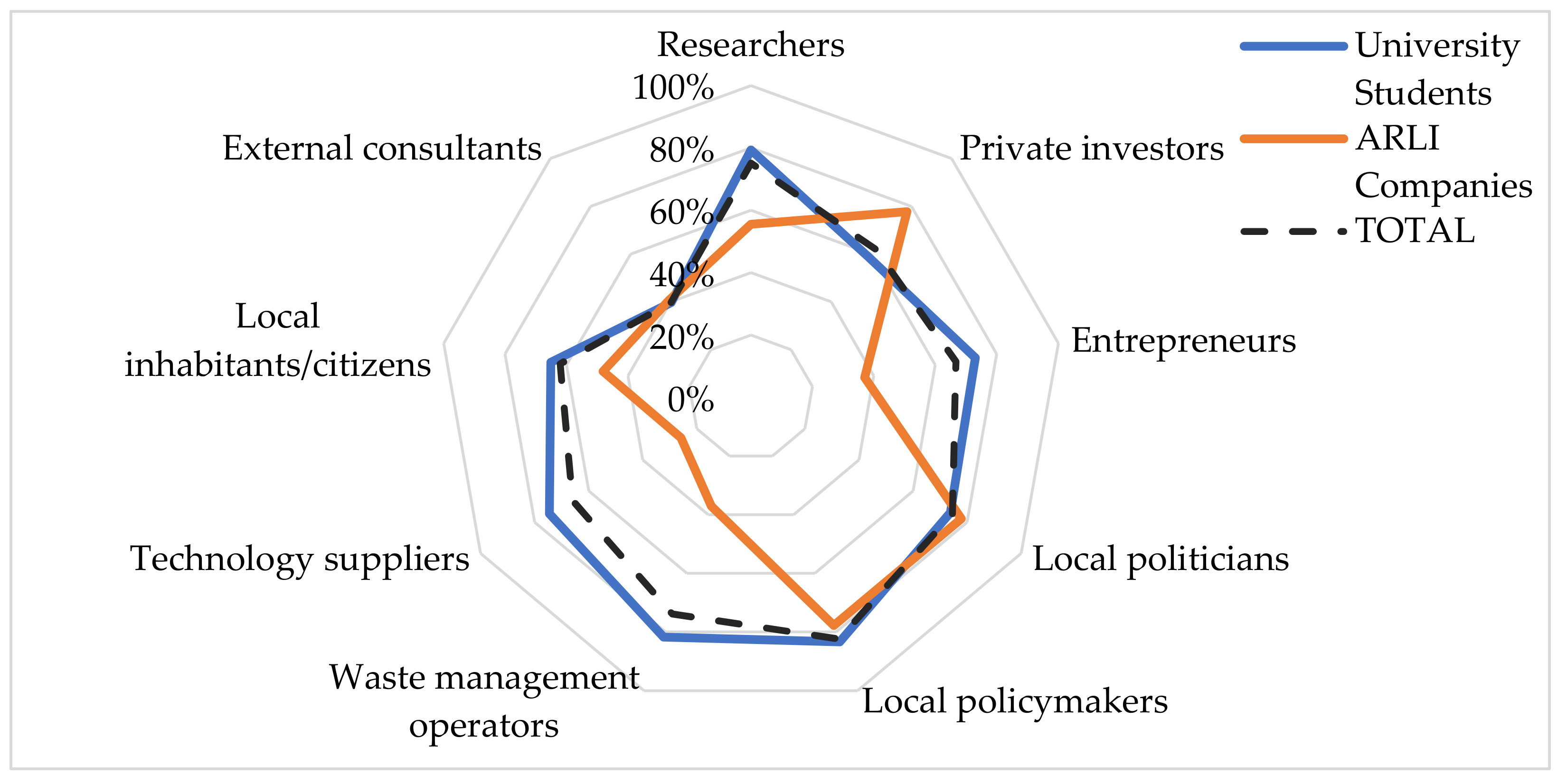
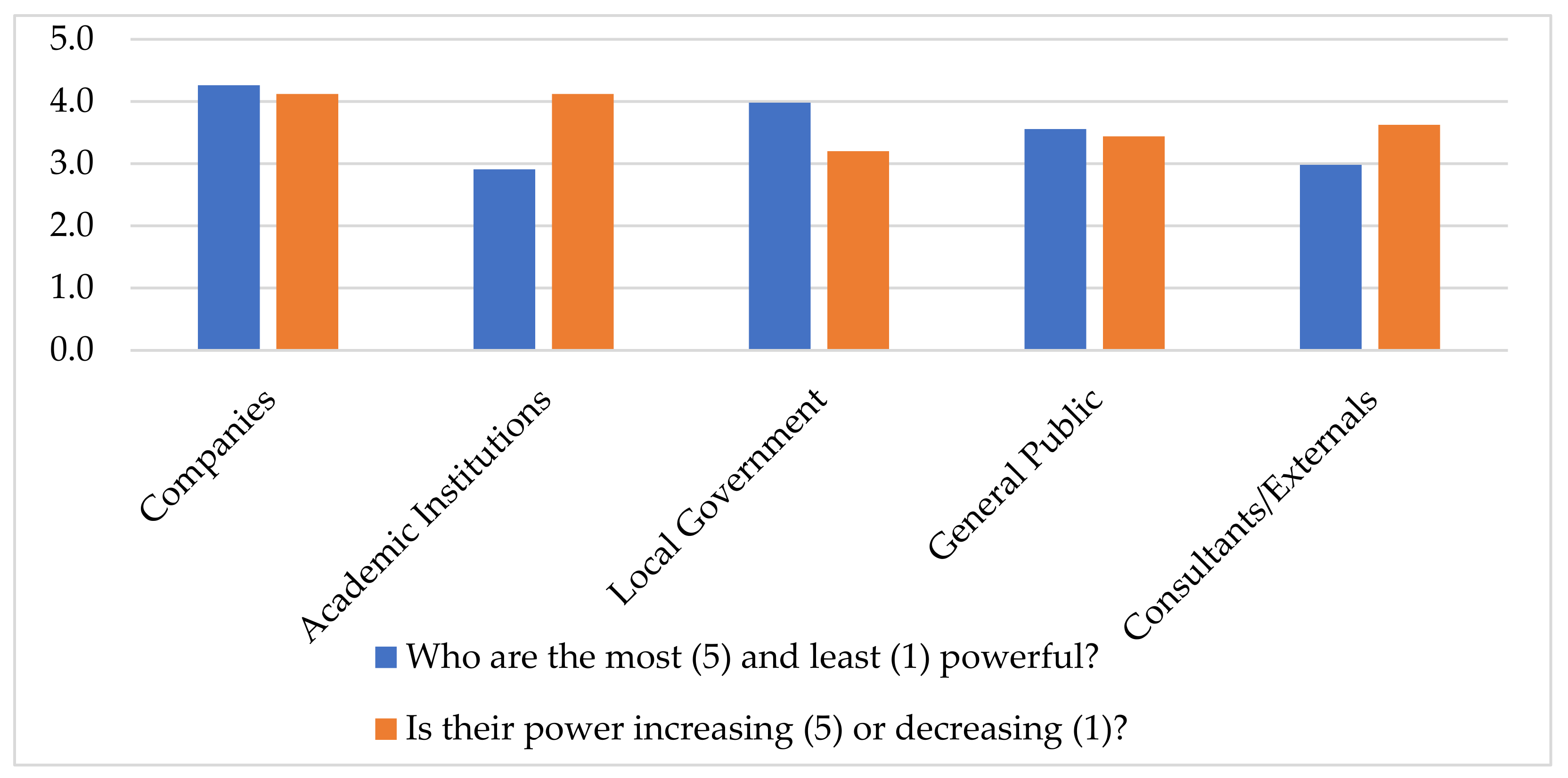
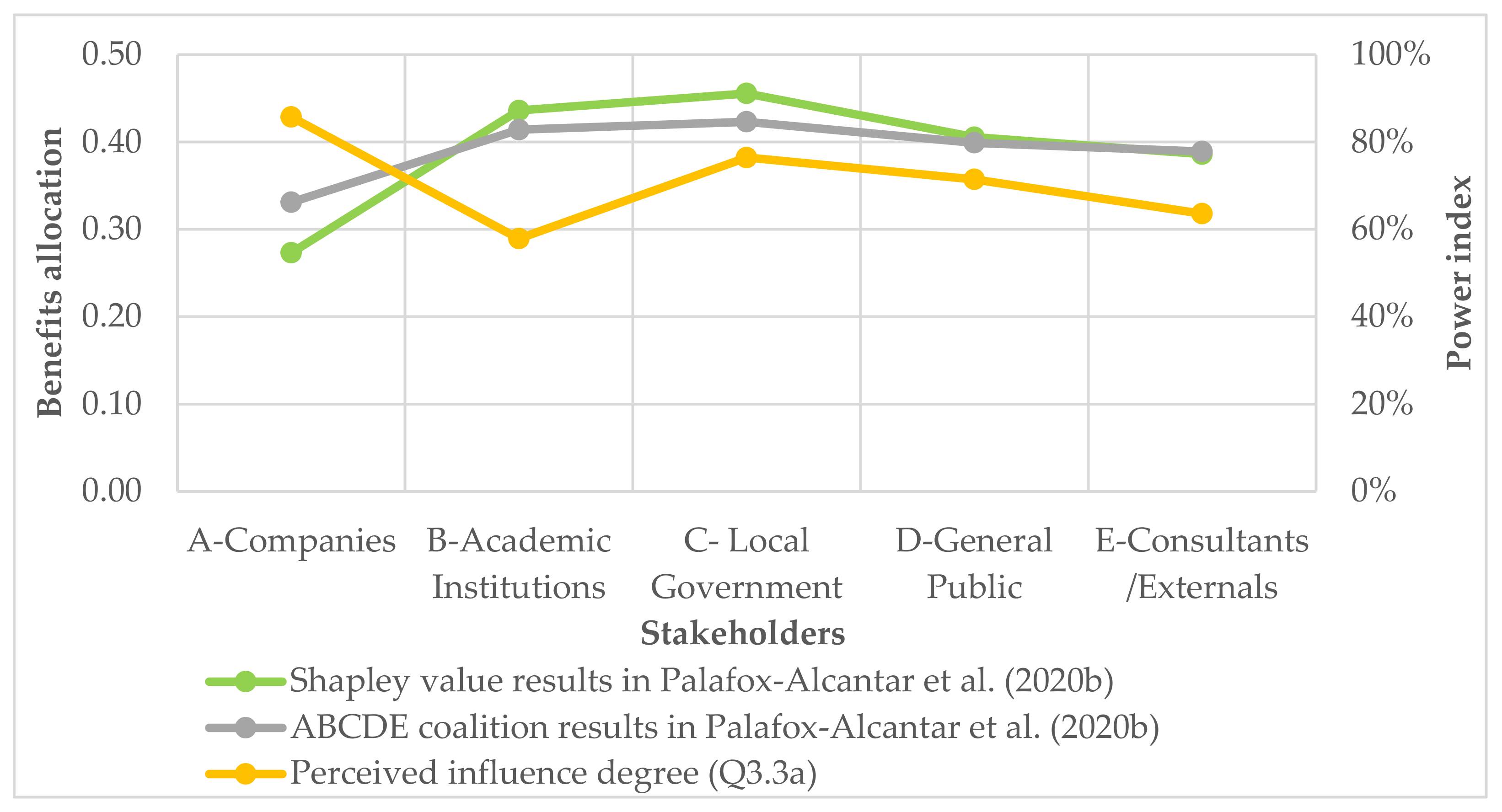

| Authors | Application | Region/Country |
|---|---|---|
| [16] | Analysed perceptions and practices related to the recycling of aluminium cans. | Spain |
| [17] | Analysed the perceptions on aspects relating to the siting of new incinerator and landfill facilities. | Campania, Italy |
| [18] | Explored further such awareness and opinions and recycling practices of the waste produced at home. | Italy, and La Paz, Bolivia |
| [19] | Surveyed about the effectiveness of active learning procedures when considering environmental and social issues. | Basque Country, Spain |
| [20] | Asked about the importance of CE topics to their courses and future careers. | Madrid, Spain |
| [21] | Surveyed about fashion industry trends and their behaviours towards more circular companies | Insubria, Italy |
| [22] | Enquired on attitudes and practices concerning recyclable waste segregation and collection activities in university campuses. | Bolivia |
| [23] | Surveyed Massive Open Online Courses (MOOCs) on the use of environmental assessment tools including CE as enablers for improving sustainability. | Spain and Latin America |
| [24] | Studied the applications of CE techniques to design and develop products. | Spain |
| [25] | Surveyed current awareness of barriers to, and future prospects of, the sharing economy and related business models. | Russia |
| [26] | Surveyed attitudes and willingness of the local government to adopting CE principles. | Portugal |
| CE Factors Influencing the Ability to Achieve Cooperation | ||||||||
|---|---|---|---|---|---|---|---|---|
| Authors | Awareness | Waste Behaviours | Activities/ Practices | Barriers/ Drivers | Attitudes | Indicator Preferences | Benefit/Cost Expectations | Perceptions of Others |
| [16] | ✓ | ✓ | ✓ | |||||
| [17] | ✓ | ✓ | ✓ | ✓ | ✓ | |||
| [18] | ✓ | ✓ | ✓ | ✓ | ✓ | ✓ | ||
| [19] | ✓ | ✓ | ✓ | |||||
| [20] | ✓ | ✓ | ✓ | ✓ | ||||
| [21] | ✓ | ✓ | ✓ | ✓ | ||||
| [22] | ✓ | ✓ | ✓ | ✓ | ||||
| [23] | ✓ | ✓ | ||||||
| [24] | ✓ | ✓ | ✓ | |||||
| [25] | ✓ | ✓ | ✓ | |||||
| [26] | ✓ | ✓ | ✓ | ✓ | ||||
| Authors | Application | Region/Country |
|---|---|---|
| [9] | Focused on revealing the barriers to CE adoption, the CE practices adopted by firms and general future attitudes to CE development. | European Union |
| [10] | Assessed the willingness of consumers to be actively involved in closed loops aiming at reducing food waste. | Italy |
| [13] | First recorded study attempting to measure CE awareness of practitioners. They provided a starting point to develop CE in the region. | Tianjin, China |
| [28] | Investigated awareness and practices of CE in domestic households, and attitudes of the general public towards the future development of CE. | Urumqi Midong, China |
| [29] | Measured the CE awareness of officials in six city authorities, and investigated the relationship between CE awareness and enforcement efficiency at the city level. | Northwest China |
| [30] | Studied public awareness and attitudes towards CE by asking participants to rank areas of CE that affect consumers positively and identify which business activities would benefit most from CE adoption. | Thrace, Greece |
| [31] | Focused on daily routine and household CE related activities, as well as future expectations on how CE will develop in the region. | Malopolska, Poland |
| [32] | Studied consumer viewpoints towards CE strategies that attempted to reduce food waste. | Romania |
| [33] | Asked consumers about their opinions on participating in CE business models for food waste reduction. | Italy |
| [34] | Established the relationships between awareness and actual practices of small firms to operate under CE principles. | China |
| [35] | Focused on the main actors in a supply chain (focal firms) to study their awareness, practices and barriers. They also studied how well the focal firms have implemented CE practices or are considering implementing CE practices soon. | Europe |
| [36] | Evaluated the awareness and actual CE practices of manufacturing companies and their practices embedded in the 3Rs. | UK and Ireland |
| [37] | Surveyed employees in the biotech and pharmaceutical sectors about their awareness and attitudes towards the firms’ zero-waste-to-landfill strategies. | United States |
| [38] | Analysed the levels of awareness, challenges to and enablers of CE practices in the construction industry. | United Kingdom |
| [39] | Studied the barriers to adopting CE in the construction and demolition waste management sector. | Iran |
| [40] | Identified the key barriers and opportunities that prevent or help CE business practitioners to adapt their current ‘linear’ business to a ‘circular’ business. | European Union |
| [41] | Interviewed Gold Leaf member organisations on what they are doing around CE, the opportunities, barriers and solutions and what more UKGBC could do. | United Kingdom |
| [42] | Measured firms’ transversal, sectorial, territorial and governance strategies towards CE transformation | Brussels, Belgium |
| [43] | Surveyed companies on their barriers and drivers to achieve CE projects. | Tasmania, Australia |
| CE Factors Influencing the Ability to Achieve Cooperation | ||||||||
|---|---|---|---|---|---|---|---|---|
| Authors | Awareness | Waste Behaviours | Activities/ Practices | Barriers/ Drivers | Attitudes | Indicator Preferences | Benefit/Cost Expectations | Perceptions of Others |
| [9] | ✓ | ✓ | ✓ | |||||
| [10] | ✓ | ✓ | ✓ | ✓ | ||||
| [13] | ✓ | ✓ | ||||||
| [28] | ✓ | |||||||
| [29] | ✓ | ✓ | ✓ | ✓ | ||||
| [30] | ✓ | ✓ | ||||||
| [31] | ✓ | ✓ | ✓ | ✓ | ||||
| [32] | ✓ | ✓ | ✓ | |||||
| [33] | ✓ | ✓ | ✓ | ✓ | ✓ | |||
| [34] | ✓ | ✓ | ✓ | ✓ | ||||
| [35] | ✓ | ✓ | ✓ | ✓ | ||||
| [36] | ✓ | ✓ | ✓ | |||||
| [37] | ✓ | ✓ | ✓ | |||||
| [38] | ✓ | ✓ | ||||||
| [39] | ✓ | |||||||
| [40] | ✓ | |||||||
| [41] | ✓ | ✓ | ||||||
| [42] | ✓ | ✓ | ✓ | ✓ | ✓ | |||
| [43] | ✓ | |||||||
| ARLI Companies | Number | % | University Students | Number | % |
|---|---|---|---|---|---|
| Industry sector | Geographic origin | ||||
| Education | 7 | 25.9% | China | 46 | 45.5% |
| Medical | 6 | 22.2% | South and Southeast Asia | 8 | 7.9% |
| Construction and Land Development | 9 | 33.3% | Middle East | 5 | 5.0% |
| Agriculture | 1 | 3.7% | Europe | 37 | 36.6% |
| Manufacturing | 4 | 14.8% | Africa | 2 | 2.0% |
| Size of organisation | Americas | 3 | 3.0% | ||
| 1—independent | 2 | 7.4% | I’d rather not say | 0 | 0.0% |
| From 2 to 9 | 6 | 22.2% | Age group | ||
| From 10 to 49 | 4 | 14.8% | 18–22 | 30 | 29.7% |
| From 50 to 249 | 4 | 14.8% | 23–26 | 53 | 52.5% |
| 250 and above | 11 | 40.7% | 27–30 | 8 | 7.9% |
| Position | 31 and older | 10 | 9.9% | ||
| Chief Executive Officer | 5 | 18.5% | I’d rather not say | 0 | 0.0% |
| Director | 10 | 37.0% | Gender | ||
| Project Champion | 7 | 25.9% | Female | 34 | 33.7% |
| Manager | 5 | 18.5% | Male | 67 | 66.3% |
| Time in position (years) | Other | 0 | 0.0% | ||
| Average | 7.59 | Programme of study (University) | |||
| Minimum, Maximum | 1 | 32 | Engineering and Management (Birmingham) | 88 | 87.1% |
| Standard Deviation | 8.29 | Business Management (Oxford) | 13 | 12.9% |
| No. | Question (Q) | Choices for Question (Ai) | References |
|---|---|---|---|
| Q1.1 | How well do you understand the concept of ‘circular economy’? | (Very well) 5; 4; 3; 2; 1 (Not well at all); Never heard of it | [42] (p. 11) |
| Q1.2 | Do you agree with the following statement…? The ‘circular economy’ is just another word for reducing, reusing and recycling materials. | (Strongly agree) 5; 4; 3; 2; 1 (Strongly disagree) | [41] |
| Q1.3 | Which of the following concepts are important to the ‘circular economy’? | Close material loops; Reduce; Reuse; Recycle; Systems thinking; Renewable energy use; Build resilience; Design out waste; Share resources; Increase exchange | [36] |
| No. | Question (Q) | Choices for Question (Ai) | References |
|---|---|---|---|
| Q2.1 | How important is adopting circular economy principles to your discipline/industry? | (Very important) 5; 4; 3; 2; 1 (Not important at all) | [13,16,31,34] |
| Q2.2 | What do the components from the waste generated in your discipline represent to you? | Discards to dispose of in landfill; Materials to recycle; Waste to incinerate; By-products valuable to others; Hazardous materials to manage carefully | [17,18] |
| Q2.3 | Which of the following do you think would be strong motivators to transition to a more circular economy approach? | Limited resource supply; Increasing of future profits; Sustainable business strategy; Entering new markets; Public opinion; Energy savings; Fluctuating resource prices; Enforcements by law; Keeping up with competitors; Reduce waste; Avoid landfill; Decrease costs | [29,38,40] |
| No. | Question (Q) | Choices for Question (Ai) | References |
|---|---|---|---|
| Q3.1 | Do you agree with… It is essential to trust other stakeholders and disciplines when cooperating in the implementation of circular economy principles | (Strongly agree) 5; 4; 3; 2; 1 (Strongly disagree) | [31] |
| Q3.2 | Who among the following actors needs to cooperate when adopting CE principles in the new waste management strategies in the city? | Researchers; Private investors; Entrepreneurs; Local politicians; Local policymakers; Local authorities; Academic institutions; Waste management operators; Technology suppliers; Local inhabitants/citizens; External consultants | [18] |
| Q3.3a | Which stakeholders are the most/least powerful in the circular implementation process? | (Most) 5; 4; 3; 2; 1 (Least) | This question aims to compare the results with the Shapley Value results in [12] |
| Q3.3b | Is their power increasing, decreasing or staying the same? | (Increasing) 5; 4; 3; 2; 1 (Decreasing) |
Publisher’s Note: MDPI stays neutral with regard to jurisdictional claims in published maps and institutional affiliations. |
© 2021 by the authors. Licensee MDPI, Basel, Switzerland. This article is an open access article distributed under the terms and conditions of the Creative Commons Attribution (CC BY) license (https://creativecommons.org/licenses/by/4.0/).
Share and Cite
Palafox-Alcantar, P.G.; Hunt, D.V.L.; Rogers, C.D.F. Current and Future Professional Insights on Cooperation towards Circular Economy Adoption. Sustainability 2021, 13, 10436. https://doi.org/10.3390/su131810436
Palafox-Alcantar PG, Hunt DVL, Rogers CDF. Current and Future Professional Insights on Cooperation towards Circular Economy Adoption. Sustainability. 2021; 13(18):10436. https://doi.org/10.3390/su131810436
Chicago/Turabian StylePalafox-Alcantar, P. Giovani, Dexter V. L. Hunt, and Christopher D. F. Rogers. 2021. "Current and Future Professional Insights on Cooperation towards Circular Economy Adoption" Sustainability 13, no. 18: 10436. https://doi.org/10.3390/su131810436
APA StylePalafox-Alcantar, P. G., Hunt, D. V. L., & Rogers, C. D. F. (2021). Current and Future Professional Insights on Cooperation towards Circular Economy Adoption. Sustainability, 13(18), 10436. https://doi.org/10.3390/su131810436








